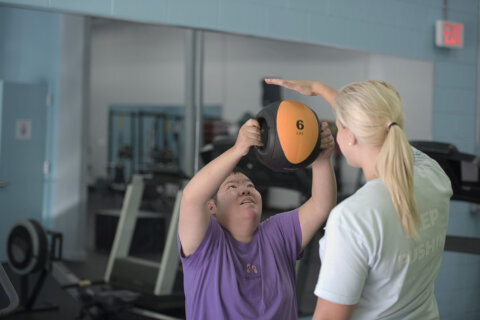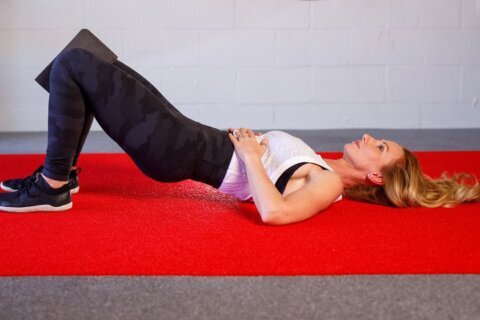Smartphone apps and wearable devices that monitor people’s heart health are evolving at blinding speeds. A Northern Virginia cardiologist believes they’re helpful tools more people should be using.
They can, for example, measure heart rate, record an electrocardiogram and warn people if they’re having an abnormal heart rhythm.
“Some of them can even check your blood oxygen saturation and, in the era of COVID-19, it’s a huge advantage that people can make sure that they’re getting enough oxygen in their blood,” said Dr. Warren Levy, a board certified cardiologist and president of Virginia Heart, where he’s the chief medical officer.
Levy says there are many devices on the market that anyone can buy.
“Those would be your smartwatches, your smartphones, external devices that allow you to measure your electrocardiogram or your oxygen saturation,” Levy said. “Other wearable devices that we use need to come from a physician’s order.”
A small wearable patch a doctor would prescribe might be worn for a week or month, for example, to measure heart rhythms in real time for review later.

There also are other medical specialties using wearable devices.
“Whether it be physical therapists, or orthopedic surgeons, certainly our endocrinologists love some of the glucose, the sugar monitoring devices that people can wear to better manage their diabetes,” Levy said.
February is American Heart Month and Levy believes everyone should be actively responsible for their own health as best they can.
Levy said a recently published study, “showed that our older patients are much more resistant to using either health applications on smartphones, or any of these wearable devices.”
“And that’s unfortunate because that’s the population that would probably benefit most from having more feedback about their health and becoming better partners in their own health care.”
Levy said study after study shows that people who take an active role in their own well-being “do much better in the long run, have happier, healthier, more active lives. And it doesn’t take that much effort.”
What are some things to keep in mind, according to Levy?
- Know your numbers
- Keep blood pressure under control
- Be aware of signs of diabetes
- Visit your doctor regularly
- Eat a heart healthy diet
- Be active
“All it takes is 30 minutes of activity, five days a week, and that will markedly reduce your risk of cardiovascular disease,” Levy said.








